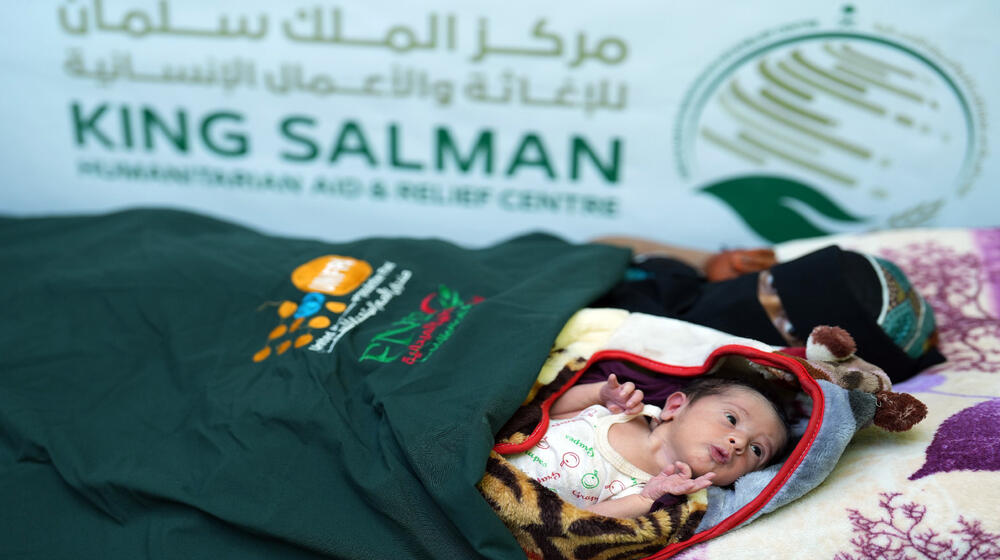Lahj, Yemen - Hayat Ahmed Saleh, 32, from Al-Suqya District in Lahj Governorate, suffers from severe anemia. The family survive with the little income they make from rearing sheep, which is barely enough to have one meal a day.
Hayat has already lost two children, who were born prematurely. Hayat was undernourished during her pregnancies and delivered at home with the help of an unskilled birth attendant. The did not have enough money to hire a car to go to a health facility - the closest WAS 40 kilometeres away - or pay for the health care.
“I was determined to have a child. I did not want to give up. I prayed daily for a solution to carry to term and give birth to a healthy baby,” Hayat told UNFPA.
Hayat heard from people in her village about Al Ara Rural Hospital that provides free reproductive health services. Al Ara Rural Hospital is supported by UNFPA with the financial assistance of King Salman Humanitarian Aid & Relief Centre (KSrelief).
"When I heard about free reproductive health services being provided at Al Ara Rural Hospital, and the availablity of specialized of a female doctor and gynecology and trained midwives, I decided I will walk there and explain my situation,” tells Hayat.
A month later, Hayat fell pregnant. She adhered carefully to the instructions given by the doctor even if it meant walking hours on foot to reach the hospital. When the delivery date drew close she stayed with a relative residing close to the hospital.
“I stayed with a relative and visited the health facility every week until labour. I was cared for by midwives with the supervision of a doctor. When I was ready to give birth I was nervous but confident because I was in the hands of specialists inside a health facility, which I never thought was possible,” tells Hayat.
Hayat gave birth to a healthy boy. UNFPA's partnership with KSrelief is helping to increase access to reproductive health services for women like Hayat, allowing them to delivery safely with the assistance of skilled health personnel.
With KSrelief's support more than 20,000 women were able to deliver safely with the assistance of qualifed health personnel, while 50,000 pregnant women recieved antenatal and postnatal care in the past eight months in southern governorates of Yemen.


